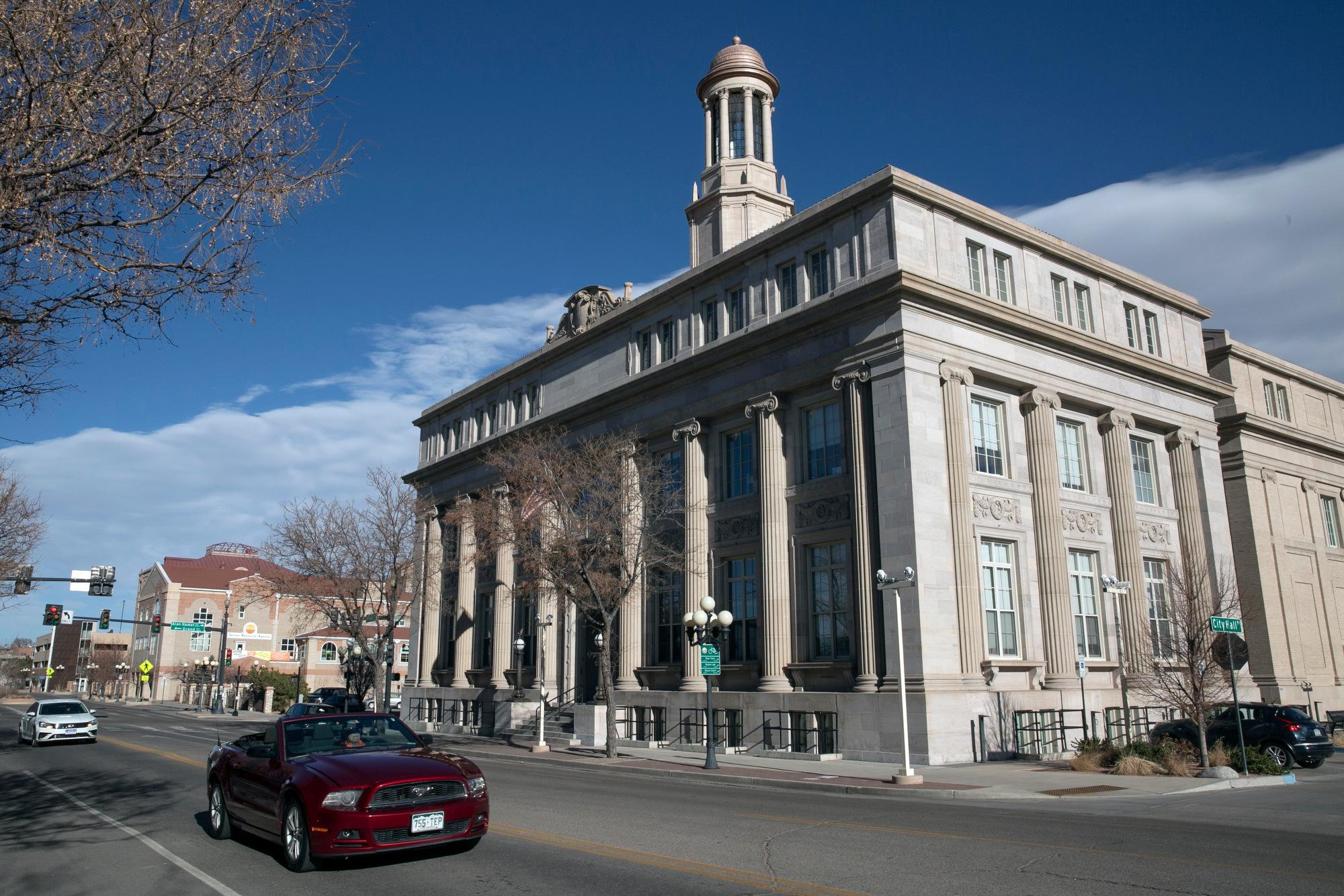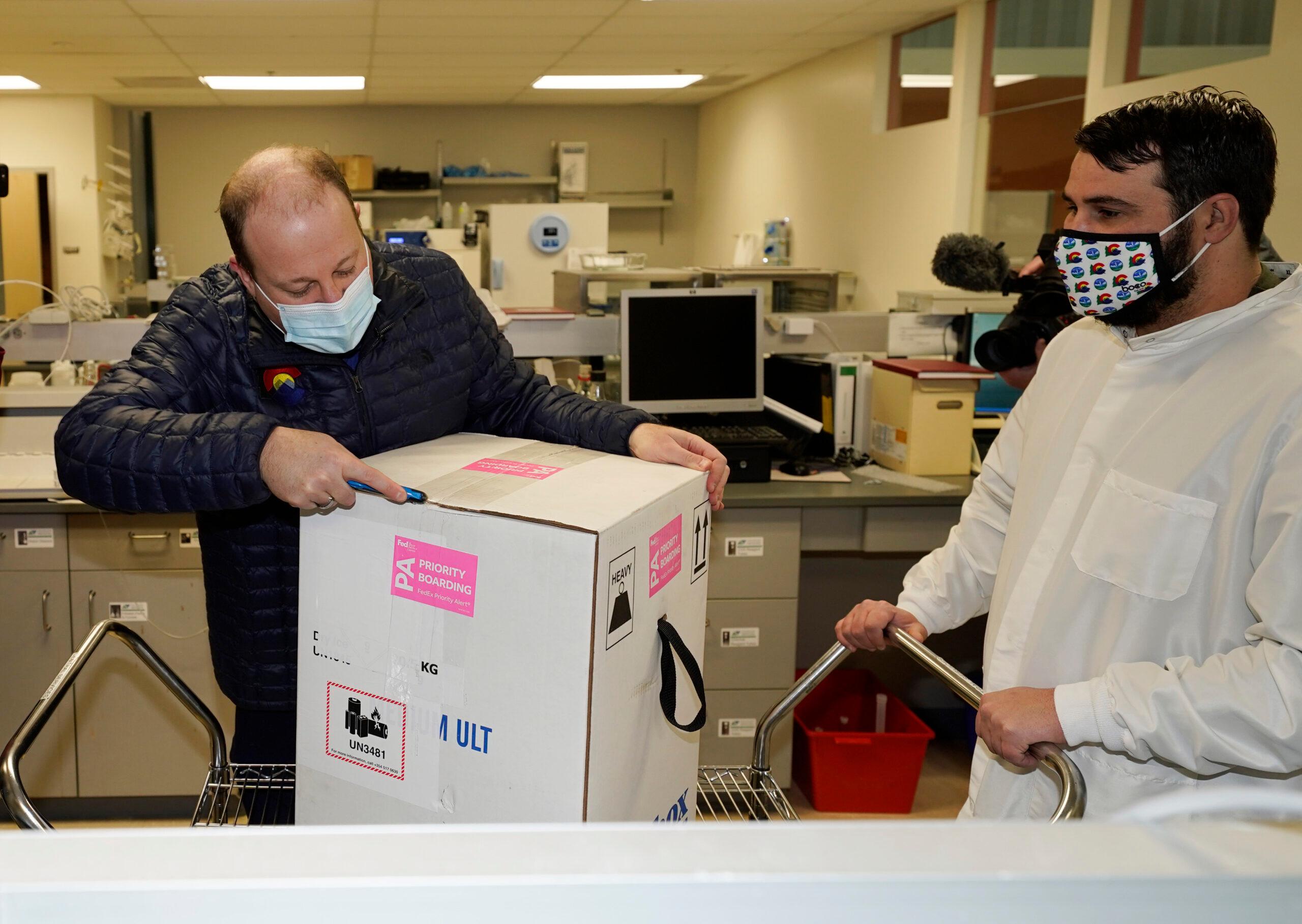
Updated 4:02 p.m.
- First doses in Denver: State's first vaccine doses arrived via FedEx, to Denver's Lowry neighborhood
- Vaccines and masks: Masks, distancing will still be needed after vaccine arrives
- Vaccine rollout: Who gets it first? Here's Colorado's vaccine distribution plan
- Testing: Where you can get a COVID-19 test in Colorado right now
Colorado's first shipment of the Pfizer COVID-19 vaccine arrived in Colorado Monday morning, and a respiratory therapist in Fort Collins became the first Coloradan to be inoculated.
Just six more months or so until most of us can get a shot.
Gov. Jared Polis was at the laboratory run by the state Department of Public Health and Environment in Denver's Lowry neighborhood when the freight entrance door bell rang as the first boxes of vaccine arrived.
“It’s the Pfizer vaccine arriving here in Colorado to end the pandemic!” Polis called out as Preston Riley, a FedEx delivery worker, wheeled up the cardboard box.
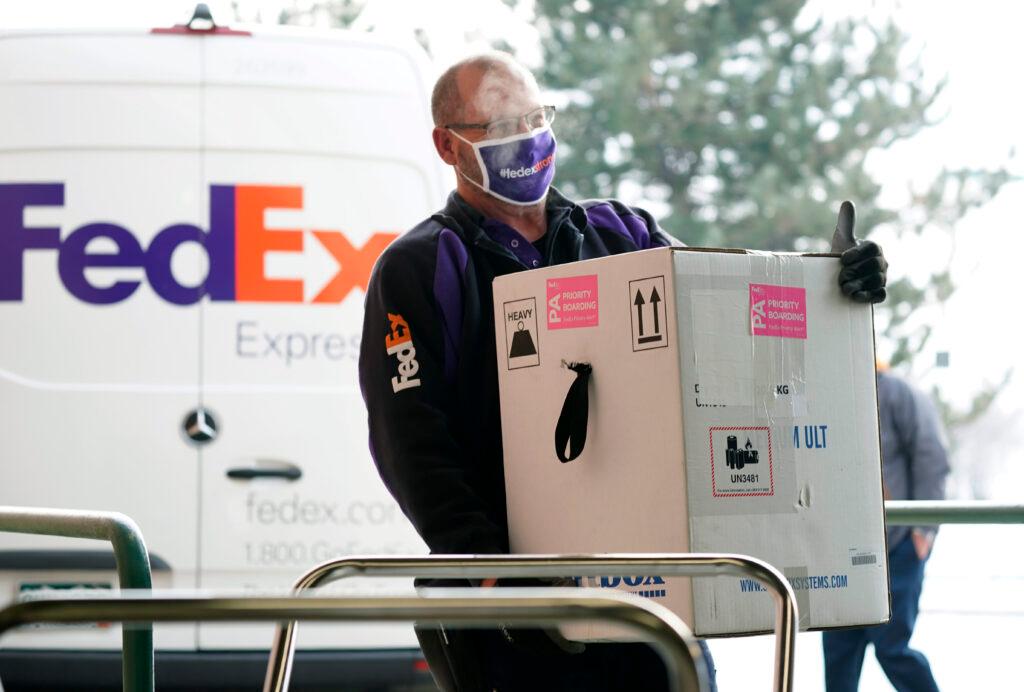
Riley shared in the celebration.
“It’s a great thing to be a part of,” Riley said to a pool reporter through a mask with the words “FedEx strong” printed on it. “Get our country back moving again.”
Two other vaccine shipments were delivered to UCHealth Poudre Valley Hospital in Fort Collins and Boulder Community Health on Monday morning, part of 46,800 doses of the Pfizer vaccine coming to the state.
The state will also receive 95,600 doses of Moderna's vaccine next week, if the U.S. Food and Drug Administration grants the vaccine emergency use authorization. There are 156 medical sites and local health departments across the state set to receive doses.
Vaccine distribution will roll out across Colorado in phases.
This winter, during Phase 1A, vaccines will go first to high-risk health care workers and the staff and residents of long-term care facilities.
The first of those was administered to Kevin Londrigan, a respiratory therapist at Loveland's UCHealth Medical Center of the Rockies, who got his shot at UCHealth Poudre Valley Hospital in Fort Collins. Londrigan has underlying health conditions and spends 95 percent of his days working with COVID-19 patients.
"This has been a long, exhausting, time coming," Londrigan said, according to a pool report.
Just 20 staffers at the Fort Collins Hospital were to be inoculated Monday. They will need to remain masked and distant for some time, even when not at work, and will need a second dose of the vaccine in about a month.
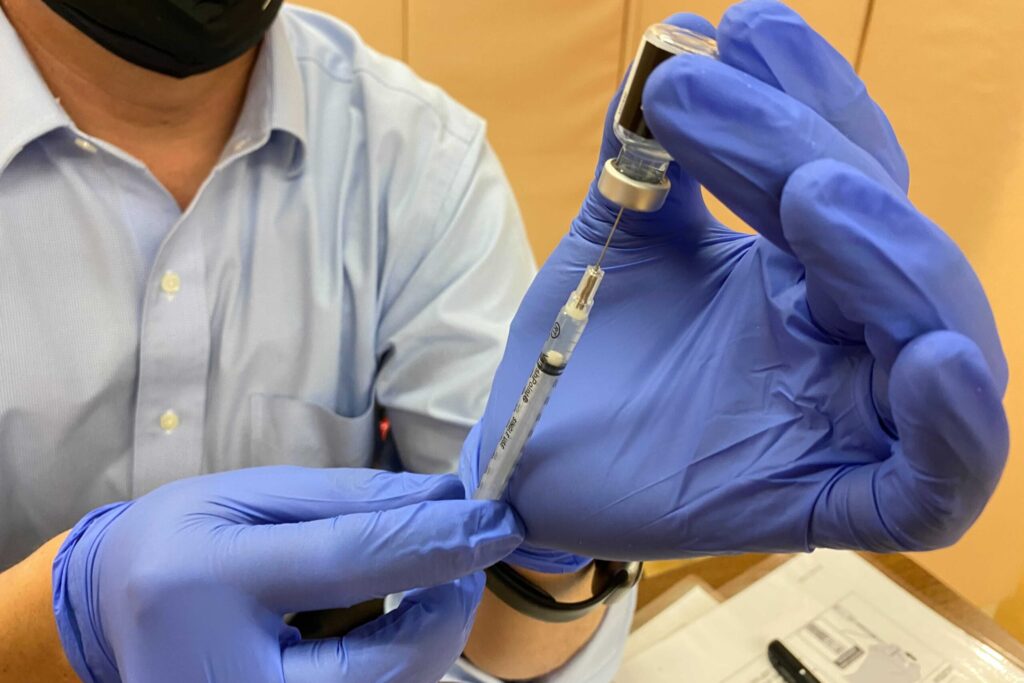
At UCHealth Memorial Hospital in Colorado Springs, pharmacist Laura Brewer was part of the team giving inoculations to her colleagues. Then she was able to get inoculated herself, noting it was great to be a part of what felt like a historic occasion.
Brig. Gen. Scott Sherman of the Colorado National Guard, who is leading Colorado’s vaccine distribution task force, said it will likely be after Christmas before long-term care residents begin to get inoculated. Workers from Walgreens and CVS pharmacies will give the shots at those facilities.
Phase 2 will make vaccines available to higher-risk people and essential workers, including people who interact with the public and those who work in "high density" work settings.
In summer, 2021, in Phase 3, the general public gets access.
The state tested its distribution protocols last Tuesday by bringing a mock dose of the Pfizer vaccine from Denver International Airport to Vail Health Hospital, one of eight regional hubs the state has designated to receive the vaccine in the coming days. There are 156 hospitals, medical sites and county health departments scheduled to receive vaccine doses as they become available.
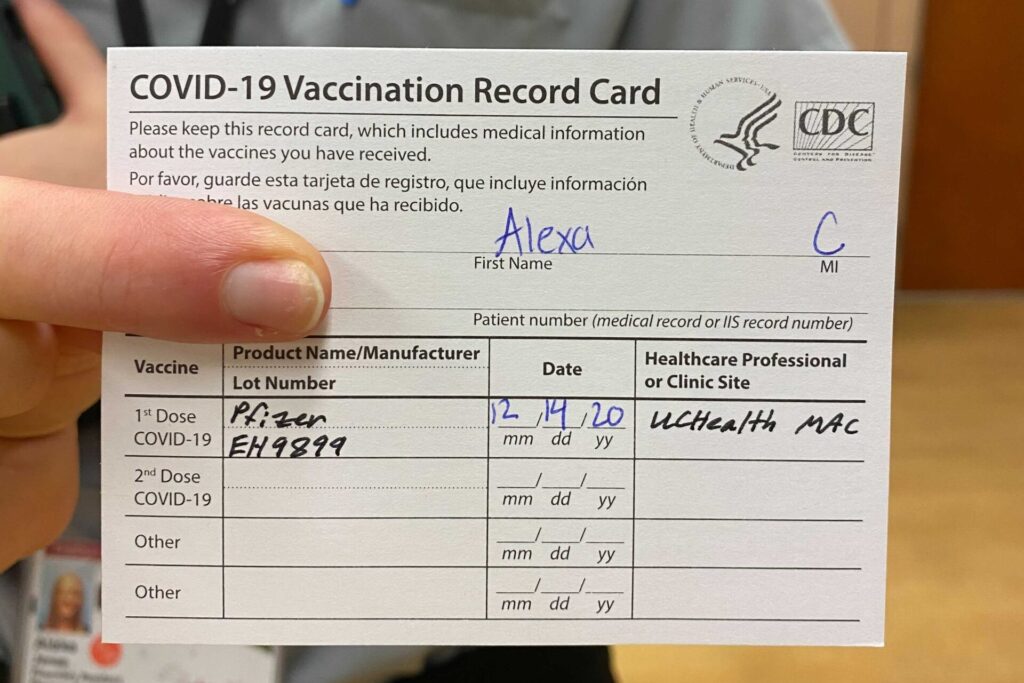
Masks, social distancing will still help to control the spread.
Just 60 percent of people in the state say they'd be willing to take a COVID-19 vaccine, according to a Healthier Colorado poll announced last week. Medical groups estimate that 70 percent participation is needed for Colorado to reach broad protection through herd immunity.
In the meantime, experts say staying home or mask-wearing and physical distancing if you must go out will continue to be the most effective way to prevent infection.
But Polis told the media pool he was glad to be underway.
“This is also a triumph of modern science,” Polis said. “When you think about how long it took to get prior vaccines — like polio and others — to market. Years, even decades, some of them. This one was done in record time.”
Colorado Public Radio reporters John Daley and Andrea Dukakis and pool reporters Jesse Paul of The Colorado Sun, Seth Klamann of The Denver Gazette and Saja Hindi of The Denver Post contributed to this report.





